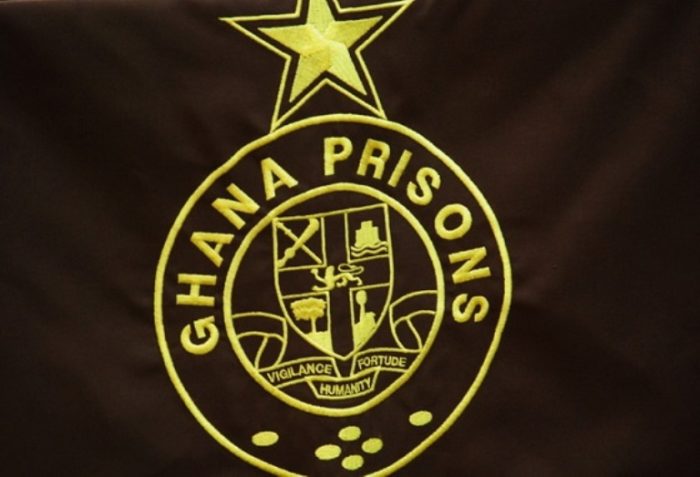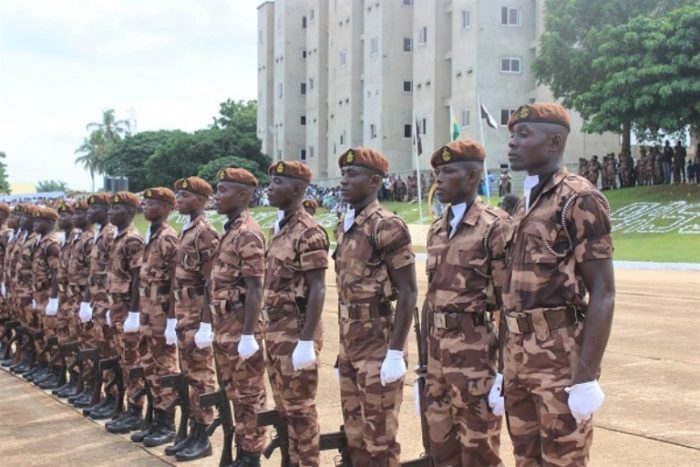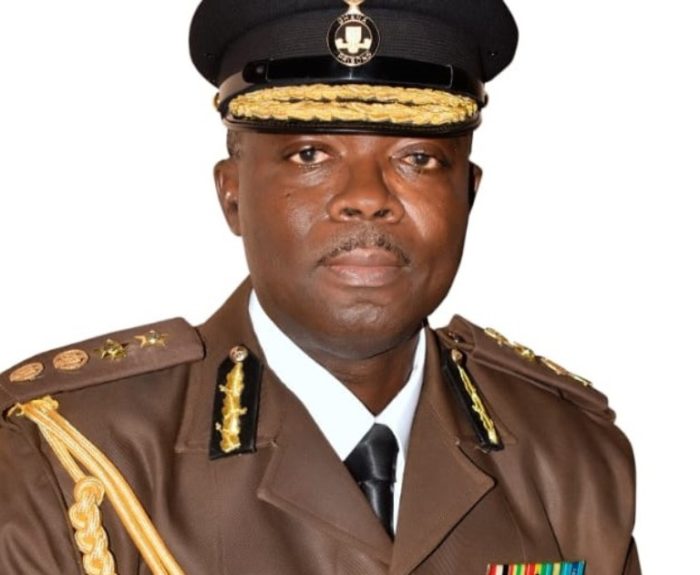Officers of the Ghana Prisons Service (GPS) are referred to as prison officers, corrections officers, detention officers, correctional officers, or penal officers. These are men and women duly recruited into the GPS and charged with the responsibility of security, supervision, and safety of prison inmates or people in related forms of secure custody.
A well-organized chain of command defines activities at the GPS in the same way as other paramilitary services in the country, from the lowest recruit to the highest officer. The salaries of these officers are paid according to ranks – higher ranks receive higher salaries than lower ranks.
Ghana Prisons Services Salary Structure
The Ghana Prisons Service is listed among the country’s federal agencies and its operations are conducted under the Ministry of Interior Ghana. The salaries of officers of the GPS are based on what is referred to as the SSSS (Single Spine Salary Structure) which took effect in the country in 2010.
All organized bodies in Ghana pay remunerations according to rank and the Ghana Prisons Services is not different. Rank is a huge determinate of a paycheck at GPS. Those who joined the paramilitary outfit as graduates will enroll at the Officer Cadet level and will earn higher than an SSCE holder who joined as a 2nd Class Officer.
Since 2010, the implementation of SSSS has made it possible for personnel of the GPS to earn 1500 GHS monthly on average. Officers typically earn about 2,280 GHS monthly and the salary range goes from 1,210 GHS to 3,470 GHS.
Apart from rank, the salaries of the staff of Ghana Prison Services can be affected by several other factors including skills, experience, location, education, gender, and many more.

Ghana Prison Service Salary for Prison Officer Based On Experience
Among the most important variables in determining the annual remuneration of personnel of the GPS is the experience level. Naturally, more years of experience attract higher pay relative to lesser years on the job. A prison officer who has not spent more than a couple of years on the job will be earning around 1,390 GHS on a monthly basis.
If an officer’s experience has exceeded two years but is below the five years threshold, the individual will be earning 1,710 GHS monthly (23 percent more than staff with two years experience and below).
Officers that have put in between 5 to 10 years on the job are expected to be receiving 2,420 GHS monthly (42 percent higher than the pay for staff with two to five years’ experience)
If your expertise span between 10 to 15 years in the Ghana Prisons Services, then, your expected monthly take home will be about 2,830 GHS (17 percent higher than an officer with five to ten years experience).
Experience level of 15 to 20 years will put an officer in the category of those receiving 3,110 GHS as monthly wage (10 percent higher than those with 10 to 15 years experience)
On a final note, employees of GPS who have exceeded 20 years of professional experience will be getting 3,290 GHS on a monthly basis (six percent higher than officers with 15 to 20 years experience.
Ghana Prison Service Salary for Prison Officer Based on Education
Can the salary of an officer of the Ghana Prisons Services be affected by his or her level of education? This is a question with an obvious answer as it goes without saying that higher education level attracts higher salary. Officers of the GPS with different education levels but the same work experience are not expected to be receiving the same monthly and annual remunerations.
Now, how much will the degree of a GPS personnel add to his or her salary?
When an officer’s academic qualification ends at SSCE level, his average monthly salary may not exceed 1,840 GHS. However, when the staff tenders a Diploma, Certificate, and above, he will be earning up to 2,980 GHS monthly (61 percent higher than staff with SSCE)
Prison Officer Income Comparison By Gender
Theoretically, gender isn’t supposed to affect salary, however, the reality belies this belief. For the men and women of Ghana Prisons Services, it is the men that get the preferential treatment as they receive 10 percent more than what their female counterparts are getting
Average Annual Salary Increment For Ghana Prison Worker
How often do officers of the Ghana Prisons Service get raises in their salaries? According to kept records, officers of the GPS may likely observe a salary raise every 21 months at approximately 8%. The professionals will get the same 8% but every 19 months.
Bonus and Incentive for Ghana Prison Workers
Prison officers in Ghana are not directly involved in massive revenue generation for the country, thus, theirs is seen as a low bonus-based job. However, there are a few exceptions.
Surveys revealed that there are officials of the GPS that have hand in the country’s revenue generation cycle and these are the people that earn the highest bonuses within the paramilitary outfit.
While 22 percent of Prison officers were reported to have earned one form of bonus or the other, 78% have not received any. For the staff members who got bonuses, the range was pegged between one to three percent of their annual remunerations.
Ghana Prison Service Benefits and Allowances
Apart from their annual basic salaries, employees of the Ghana Prisons Services are also compensated with some benefits and allowances which include lodging, transportation, and several others.
Ranks in Ghana Prisons Service

Than ranking system of the Ghana Prisons services is what forms the backbone of the paramilitary outfit structure. It defines the role of an officer, including their individual degree of responsibility. There is the higher cadre referred to as the Senior officers rank or the superior officer corps and the lower cadre known as the subordinate officer corps.
Generally speaking, those occupying the higher cadre are charged with more leadership roles than the lower cadre officers. As you grow in rank, your responsibilities also grow. Many of the high-ranking officers of the Ghana Prisons Services started their careers from the lowest rank and progressed through the ranks.
The highest rank in GPS is the position of the Director-General of Prisons. Though he dresses in the same ways as other officers with the GPS official cap sporting double laurel leaves and the service logo of the paramilitary outfit; the DG is distinguished by the rank insignia of four symbols with a lapel badge. Below are the ranks of the senior officers of the Ghana Prisons Services;
1. Officer Cadet
A new officer who is coming into the GPS as a graduate may be recruited through the officer cadet level. This is the rank an officer gets after initial training for the superior officer corps; this holds at the training school for prisons officers.
2. Assistant Supt. of Prisons
After undergoing all the training processes satisfactorily, a cadet officer in training will go through commissioning and the first rank he or she will be given is the Assistant Superintendent of Prisons. Upon assumption of duties, the officer will be assigned staff duties, including the supervision, treatment, custody, and training of prison inmates.
3. Deputy Supt. of Prisons
After serving as an Assistant Supt. of Prisons for a stipulated length of time, an officer of the GPS will be due for promotion and the next rank is that of the Deputy Superintendent of Prisons. At this level, the Deputy Supt will continue to play a vital role in the daily operations of the detention facility.
Some of his responsibilities include;
- Booking and releasing of offenders
- Maintaining the facility’s security
- Authorizing the escort of inmates, both within and outside the prison facility.
4. Superintendent of Prisons
The fourth level in the higher cadre is the Superintendent of Prisons. The rank holder can work in a central prison as a second-in-command or at the headquarters as a unit head. In the absence of the CSP (the Chief Superintendent of Prisons), the Superintendent acts as the officer in charge. His job responsibilities include:
- Overall coordination/supervision of activities,
- Physical security of the prison facility, and the inmates’ rights, and welfare
- Coordination of rehabilitation services.
5. Chief Superintendent of Prisons
The Chief Superintendent of Prisons (CSP) can work in Medium or Central Prisons functioning as the second-in-command to the ADP (Assistant Director of Prisons). His job responsibilities are exactly the same as the Superintendent of Prisons and include;
- Overall coordination/supervision of activities,
- Physical security of the prison facility, the inmates’ rights, and welfare
- Coordination of rehabilitation service
6. Assistant Director of Prisons
You will likely find an Assistant Director of Prisons in Medium Security Prisons or Central Prisons as the Officer-in-charge. He is charged with the onerous responsibility of
- Implementation of GPS policy as it pertains to the prison administration
- The care as well as the welfare of the prison inmates
- Proper training for the prisoner’s rehabilitation in society.
7. Deputy Director of Prisons
The Deputy Director of Prisons is usually assigned a region where he or she will become the head in command of the Prison Department. From time to time, the Director-General of Prisons issues special or general orders to be executed by the Deputy Director of Prisons. Generally, the job responsibilities for this rank include;
- Exercising control/superintendence overall prison facilities in the region
- Internal management cum economy of prison inmates under his authority.
8. Director of Prisons
The rank of the Director of Prisons comes after the Deputy Director of Prisons. The holder of this rank reports to the Director-General of Prisons who takes the responsibility of supervising his duties. The job responsibilities of the Director of Prisons include
- The analysis and recommendation of action on status requests; include matters concerning budgets.
- The identification of needs and priorities which are in turn passed to the Director-General Of Prisons for consideration
9. Deputy Director-General of Prisons
Just like the Director of Prisons, the Deputy Director-General of Prisons also works under the direct supervision of the Director-General of Prisons. These two high ranking officers have similar job responsibilities;
- The analysis and recommendation of action on status requests; include matters concerning budgets.
- The identification of needs and priorities are passed to the Director-General Of Prisons for consideration.
10. Director-General of Prisons

The provisions of the 1992 Constitution, Article 207(2) and any relevant laws charges the Director-General of Prisons with the following responsibilities;
- The administration and operational control of the Prisons Service.
- Function as the overall head of the Ghana Prisons Services
- The implementation of all decisions taken by the Prisons Service Council is part of his job responsibilities
Ghana Prison Service Junior Officers Ranks or Subordinate Officer Corps
Employees of the Ghana Prison Services who joined the paramilitary outfit with lesser qualifications like WASSCE may find themselves recruited at the lower cadre or what is referred to as subordinate officer corps. After training, the trainees are absolved into the system as recruits and then progress through the rank. Given years of experience and higher academic qualifications, an officer at the lower cadre can still make it to the higher cadre.
Below are the ranks for Junior officers;
1. 2nd Class Officer
After the Recruit Training Course is done and dusted, enrollees into the Ghana Prisons Services at the subordinate officer corps will get the 2nd Class Officer level. The job responsibilities at this level will be assigned by the superiors.
2. Lance Corporal
2nd Class Officer will have to put in three to four years before he or she will be deemed eligible for promotions to the Lance Corporal level. Holders of this rank work hand in hand with the senior chief officer in addition to Shift-in-Charge covering areas like;
- Prisoner supervision
- Guarding the inside and outside perimeter walls
- Vital installations
- Searches of vehicles including persons who enter and exit the prison
3. Corporal
After the Lance Corporal rank, the Corporal is the next in line and the duties of holders of the rank include routine work like care and custody of all offenders. These are some of the job responsibilities of a Corporal
- Direct supervision of all the offender workgroups as they go about their daily assigned duties
- The Corporal work to prevent escapes as well as maintain discipline while carrying out specific security duties in accordance with strict standard operating procedures, rules, and regulations.
4. Sergeant
The Sergeant is the fourth rank within the league of junior officers. A deserving Corporal who has put in the required number of years will be rewarded with a promotion to the rank of a sergeant. Moderately complex work that involves the custody and care of offenders forms the Sergeant’s main duties, including:
- Direct supervision of all the offender workgroups as they go about their daily assigned duties
- They work to prevent escapes as well as maintain discipline while carrying out specific security duties in accordance with strict standard operating procedures, rules, and regulations.
The duties of a Sergeant is exactly the same as that of the Corporal
5. Assistant Chief Office
The job functions of an Assistant Chief Office also involve custody and care of offenders but on a highly complex level. Some of their rank responsibilities mirror that of the sergeant and the Corporal.
6. Chief Officer
On attaining the rank of a Chief Officer, a staff of the Ghana Prisons Services assumes a more advanced level of responsibilities, but their core focus remains the custody and care of offenders. An officer at this level must be armed with sufficient knowledge of the rules, laws, regulations, including standard operating procedures that govern the GPS.
7. Senior Chief Office
The two units in the Ghana Prisons Services (the superior officer corps and the subordinate officer corps) must have a liaison officer and this is the job responsibility of the Senior Chief Office. He is the highest rank holder among the officers of the lower cadre coordinating activities between the two units. Generally, he takes charge of the under listed responsibilities;
- Observance of GPS’s prescribed rules and orders
- Custody, security, and discipline of inmates
- Supervision over welfare and care of prisoners
- Supervision over personnel Issues
- Staff discipline
- Staff welfare
The Units and Departments in Ghana Prisons Services
The Ghana Prison Service can boast various units and departments working tirelessly to achieve the operational and administrative needs of the paramilitary outfit. These include;
- Finance & Administration
- Human Resource Development
- Agric
- Welfare
- Support Services
- Service & Technical
- Security & Operation
- Inmate Skill Development & Rehabilitation
